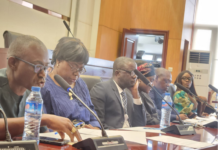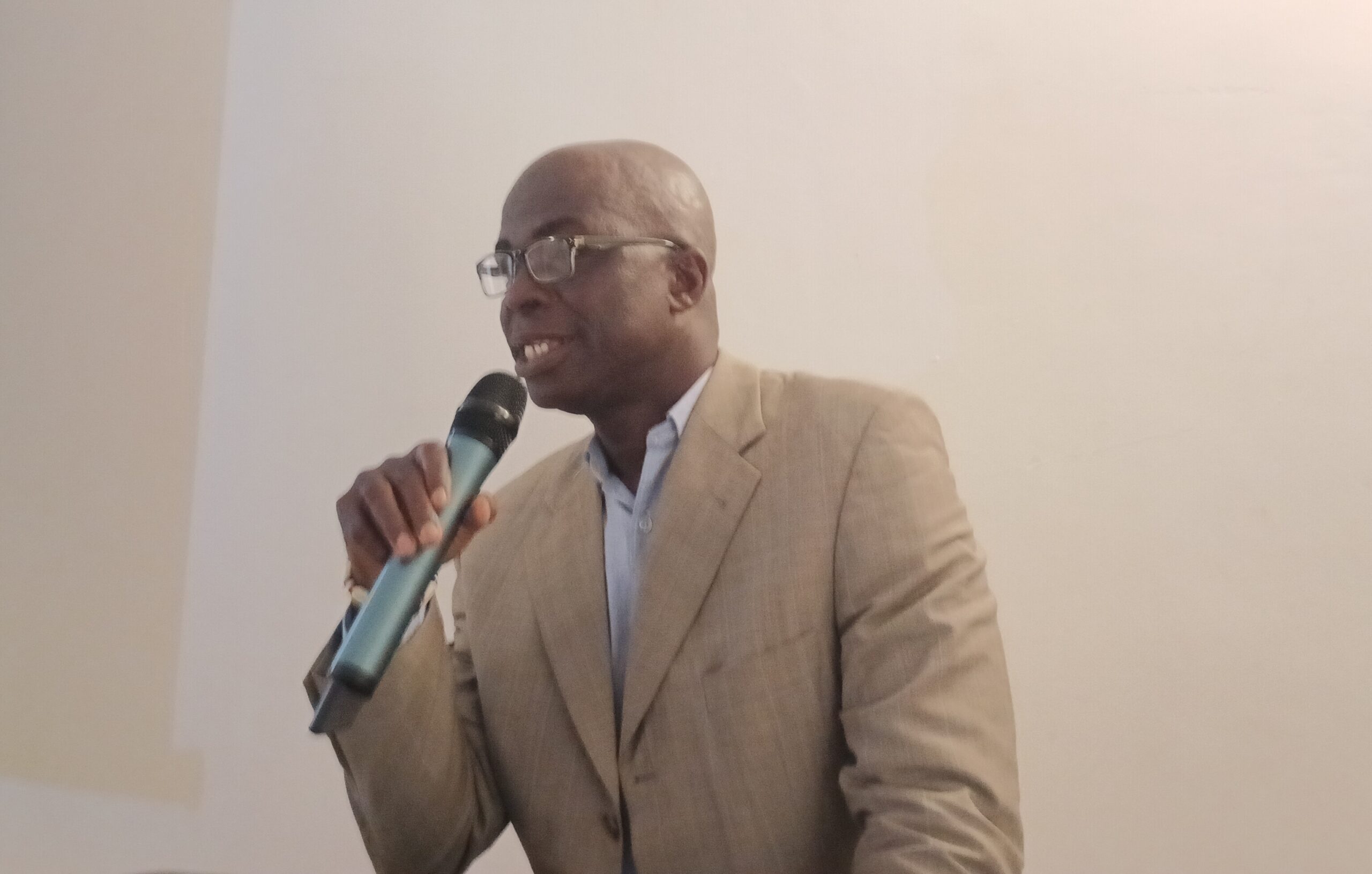A national debate continues to brew over Sinoe County Representative Thomas Romeo Quioh’s controversial call for the partial or full de-gazettement of Sapo National Park.
The lawmaker has argued that the park, Liberia’s oldest national park, has failed to generate meaningful government revenue and community benefits since its establishment in 1983.
But his comments have drawn sharp criticisms from across the conservation and academic community. The latest voice of opposition comes from the Chairman of the Department of Forestry at the University of Liberia (UL), Dr. Johnson Jlokpeh Geply, who described the proposal as short-sighted and dangerous for Liberia’s biodiversity heritage.
“It is indeed glaring that the answers to the numerous concerns raised by Representative Quioh, including no or low benefits from the Park, are rooted in sound governance,” Dr. Geply said in a statement issued in Monrovia. “The near utter neglect of the Park by government and the resultant institutional weakness are historical.”
Historical Context and Governance Failures
Dr. Geply traced the roots of Liberia’s protected areas back to the 1960s when West Germany conducted the most comprehensive forest inventory in the country. While several forests were demarcated, including Gola, Krahn-Bassa, and Gbi, only proposals were made for national parks. It was not until 1983 that Sapo was gazetted.
However, he argued, the Park’s history has been marked by poor governance.
“Any forest that is gazetted and left undeveloped and/or poorly managed would not yield benefits,” Dr. Geply stressed. “Instead of proposing its de-gazettement, one would expect a lawmaker to use his office to push for solutions to its age-old management issues.”
Dr. Geply criticized the repeated appointment of non-foresters as Managing Directors of the Forestry Development Authority (FDA), which he said has weakened leadership and undermined the rule of law.
A Sanctuary for Endangered Species
Sapo National Park is home to rare and endangered species, including Liberia’s population of forest elephants — the highest in West Africa — pygmy hippos, and the endemic timber species Tetraberlinia tubmaniana. These species are listed as endangered or vulnerable under the International Union for Conservation of Nature (IUCN) Red List and protected under the Convention on International Trade in Endangered Species (CITES).
“Sapo shelters global treasures that Liberia cannot afford to gamble with,” Dr. Geply noted.
Missed Opportunities and Untapped Potential
Critics of the Park’s management agree that Sapo has not lived up to its potential. Dr. Geply argued that decades of neglect by successive governments, coupled with the lack of proper infrastructure, have stifled economic benefits that should have flowed from the Park.
Unlike Kruger National Park in South Africa, Hwange National Park in Zimbabwe, and Tai National Park in Ivory Coast — all of which generate millions of dollars annually from tourism — Sapo remains underdeveloped.
“With a visionary management system, Sapo could provide jobs for surrounding communities, generate significant government revenue, and place Liberia on the global tourism map,” Dr. Geply argued.
Liberia’s International Obligations
Beyond national interests, Liberia’s conservation commitments are also at stake. The country is a member of the African Elephant Coalition and a signatory to CITES, which obligates it to protect endangered species. Any move to degazette Sapo would undermine these international agreements, particularly ahead of the upcoming CITES Conference of the Parties (CoP30) in November 2025.
FDA’s Delayed Response
While other institutions such as the Environmental Protection Agency (EPA) and conservation NGOs swiftly rejected Rep. Quioh’s proposal, the FDA — Liberia’s lead agency on forest management — remained silent for over a month before issuing a statement. Dr. Geply described this silence as “disturbing,” questioning the agency’s commitment to its statutory responsibilities.
Recommendations
Instead of de-gazettement, Dr. Geply and other conservationists are calling for structural reforms and proper investment in the Park. He laid out a series of recommendations, including:
- Evicting poachers from the Park with support from national security.
- Ensuring only professional foresters head the FDA in line with the law.
- Developing a strategic 10-year management plan for Sapo and all protected areas.
- Increasing staff numbers and qualifications to effectively manage the Park’s three zones.
- Building eco-tourism infrastructure such as lodges, trails, and research centers.
- Paving roads leading to the Park and maintaining access routes.
- Equipping park rangers with arms, in collaboration with security agencies, to combat armed poachers.
- Introducing visa-on-arrival for tourists once major highways are paved.
A National Test of Will
For Dr. Geply, the debate over Sapo National Park is a test of Liberia’s seriousness about biodiversity conservation and sustainable development.
“Liberia cannot afford to shift from being a biodiversity hotspot to a biodiversity notorious hotspot,” he warned. “The solutions lie not in dismantling our natural heritage but in finally governing it responsibly.”
As the debate rages, the fate of Sapo National Park now stands at the crossroads of politics, governance, and Liberia’s commitment to protecting its global ecological treasures.























